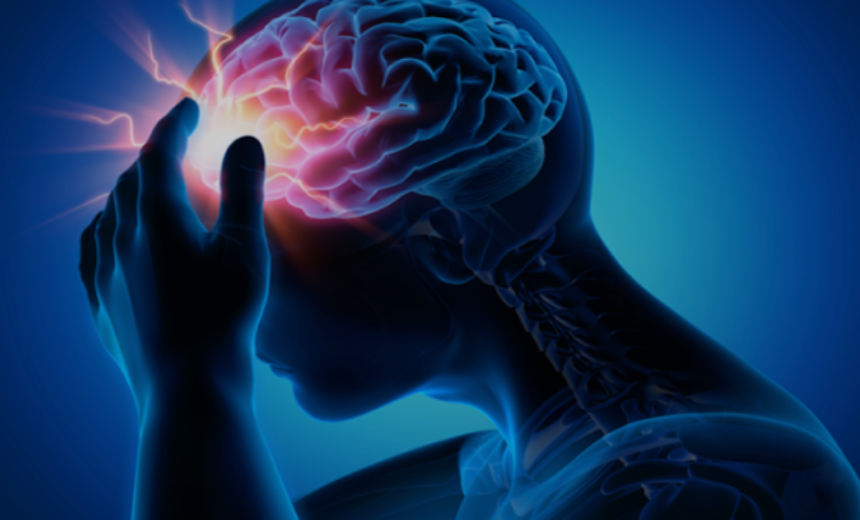Navigating Concussion Care in the ER: What to Expect

Suffering a concussion can be a distressing experience, but knowing what to expect when you seek help at the Emergency Room (ER) can provide clarity during a challenging time. In this guide, we will walk you through the process of what the ER will do for a concussion, from the moment you arrive to the steps of your recovery.
Seeking ER Care for a Concussion
When to go to the ER for a concussion is a common question, and the answer often depends on the severity of your symptoms. While some concussions can be managed at home with rest and careful monitoring, others require immediate medical attention. Knowing when to seek ER care is crucial for your well-being.
- Severe Symptoms: If you experience severe symptoms such as loss of consciousness, convulsions, or repeated vomiting after a head injury, it’s imperative to go to the ER without delay. These symptoms may indicate a more serious brain injury that requires immediate evaluation and treatment;
- Worsening Symptoms: Even if your symptoms initially appear mild, any worsening or persistent symptoms should prompt a visit to the ER. ER physicians can assess your condition, perform necessary tests, and provide guidance on your recovery.
ER Evaluation and Diagnosis
When you arrive at the ER with a suspected concussion, the medical team will conduct a thorough evaluation to assess the extent of your injury. This evaluation typically includes:
- Physical Examination: An ER physician will perform a physical examination to check for signs of head injury, neurological deficits, and other related symptoms;
- Symptom Assessment: You will be asked about your symptoms, including when they started, their severity, and any changes you have noticed;
- Neurological Tests: The medical team may conduct neurological tests to assess your cognitive function, balance, coordination, and sensory responses;
- Imaging Studies: In some cases, the ER physician may order imaging studies such as a CT scan or MRI to rule out more serious injuries like bleeding in the brain. While concussions may not always be visible on these scans, they can help identify other issues.
Treatment and Recommendations
The ER physician will determine the appropriate treatment based on the evaluation’s findings. For mild to moderate concussions, hospitalization is generally not required. Treatment and recommendations often include:
- Rest: Rest is a cornerstone of concussion recovery. You will be advised to rest both physically and mentally, which may involve limiting activities like screen time and strenuous exercise;
- Pain Management: Over-the-counter pain relievers that do not contain aspirin are often recommended to manage headaches or discomfort;
- Follow-Up Care: The ER physician will likely recommend follow-up care with a medical provider within the next few days. This appointment is essential for monitoring your recovery and addressing any lingering symptoms.
Recovery and Returning to Normal Activities
Concussion recovery varies from person to person, but most individuals can expect to recover fully within one to two weeks with proper care. During this time, it’s essential to follow your doctor’s instructions, which may include:
- Gradual Return to Activities: If you engage in sports or physical activities, especially contact sports, you should not resume them without your doctor’s approval. Gradual reintroduction is key to preventing re-injury;
- Protective Gear: When participating in activities that pose a risk of head injury, wearing appropriate protective gear is crucial to reduce the chances of future concussions;
- Symptom Monitoring: Continuously monitor your symptoms, and if any new or worsening symptoms arise, consult your healthcare provider promptly;
- Medication: Follow any prescribed medications or pain management recommendations provided by your healthcare provider.
Understanding what the ER will do for a concussion and following the recommended guidelines for recovery can significantly improve your chances of a smooth and complete recuperation. If you suspect a concussion or experience head trauma, err on the side of caution and seek medical attention promptly to ensure your safety and well-being.
Comparative Table: Home Care vs. ER Care for Concussion
Here’s a side-by-side comparison of home care and ER care for concussions:
Aspect Home Care ER Care Immediate Attention Monitor symptoms, seek medical advice if needed. Seek immediate medical attention if red flags present. Diagnosis Self-assessment and monitoring of symptoms. Thorough evaluation, including diagnostic tests. Treatment Rest, symptom management, over-the-counter pain relievers. Tailored treatment plan, pain management, and medical supervision. Follow-Up Care Schedule a follow-up appointment with a healthcare provider. ER doctor recommendations, follow-up appointments. Recovery Time Typically 1-2 weeks for mild to moderate cases. Depends on severity, with medical guidance. Red Flags Seeking immediate ER care unnecessary unless red flags emerge. Immediate ER care required for red flag symptoms.
Conclusion
Concussions are not to be taken lightly, and timely medical attention can make a significant difference in the outcome. While many concussions can be managed with rest and self-care, it’s essential to recognize the red flags that warrant a visit to the ER. The ER plays a vital role in diagnosing and treating severe concussions, ensuring the best possible recovery.
Prevention remains the most effective approach to reducing the risk of concussions. By wearing protective gear, practicing safe play, childproofing homes, using seatbelts, and taking fall prevention measures, individuals can safeguard themselves and their loved ones from the potential consequences of head injuries.
Remember that every concussion is unique, and recovery times can vary. Listen to medical advice, take the time to heal, and prioritize safety to minimize the risk of future head injuries.
FAQ
In the ER, a concussion is diagnosed through a combination of methods, including a physical examination, assessment of symptoms, and sometimes neuroimaging tests such as a CT scan or MRI. Neurological tests may also be conducted to evaluate motor skills, speech, vision, coordination, and cognitive functions.
It’s generally not recommended to drive yourself to the ER after a head injury, especially if you’re experiencing symptoms like dizziness, confusion, or impaired vision. It’s safer to have someone else drive you or call for medical assistance.
Recovery from a concussion varies from person to person. Many people recover fully within one to two weeks if they follow medical advice and rest. However, it’s essential to listen to your body and not rush the recovery process. Some individuals may experience symptoms for a more extended period.
While accidents can happen, concussions are preventable to some extent. Taking precautions, such as wearing appropriate protective gear in sports, following safety rules, childproofing homes, using seatbelts, and fall prevention measures, can help reduce the risk of head injuries.







